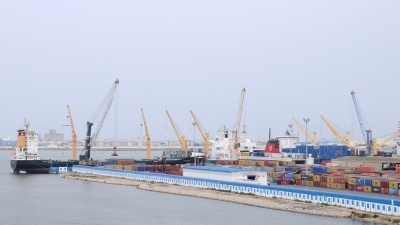Challenge
Inefficient border-management systems and cumbersome trade procedures have cost traders valuable time and money. In Colombia, merchants faced obstacles and serious delays when clearing customs and importing goods into the country. According to Doing Business data for 2008, the import process required 20 days, while the export process required 24 days. In Liberia, importing and exporting had been a long, cumbersome and paper-intensive process involving more than 40 customs-clearance steps and a myriad of required documents. These inefficient and unpredictable trade logistics inflated transaction times and costs for traders trying to gain access to global markets.
Solution
The trade logistics program addresses these challenges by simplifying and harmonizing trade procedures and documentation, by integrating risk-management systems in border clearance and inspections, and by supporting implementation of trade-related automation and single-window systems. Investment Climate teams provide advice and technical assistance tailored to client needs through the following framework:
- Rapid Response Program (10–12 months): Identifies and achieves “quick wins” that build trust, catalyze reforms and establish the basis for medium- and long-term reforms.
- Systematic Reform Program (about 3 years): Extends rapid-response work, addresses key constraints and promotes best practices for efficient trade logistics supply chains.
- Regional Program (4–5 years): Eases access to regional and global markets and provides solutions to land-locked, transit and island economies.
Results
With projects in more than 50 countries, the program has expanded its technical assistance to support the implementation of the World Trade Organization’s Trade Facilitation Agreement, address trade logistics barriers along agribusiness supply chains, improve national logistics and distribution services, and integrate across regions. Bolstered by a strong monitoring and evaluation framework that is designed to capture the outcome and impact of trade-logistics reforms, the program has proven successful in generating significant results for clients.
In Colombia, the program generated an estimated $200 million in private-sector savings by designing a national cargo risk-management policy for the country’s ports and by improving the single window for foreign trade. In Nepal, trade reforms harmonized the customs working hours of Nepal with those of neighboring India and China, prompting banks in the major customs offices to follow suit – which, in turn, increased the number of active trading days by 14 percent. In Liberia, customs-clearance steps were reduced by 74 percent from 42 to 10. Automation of the customs-clearance system resulted in an 80-percent increase in customs revenue, from $5 million in 2009 to $9 million in 2011.
In Armenia, traders now enjoy reduced trade transaction times for getting their goods to markets. The removal of the export license and technical certificates reduced export documents from seven to five and reduced export time by 56 percent in three years. Armenian exporters are no longer required to have Expertise Test Reports to obtain a Certificate of Origin. This saves them four days and $100 per export transaction.
